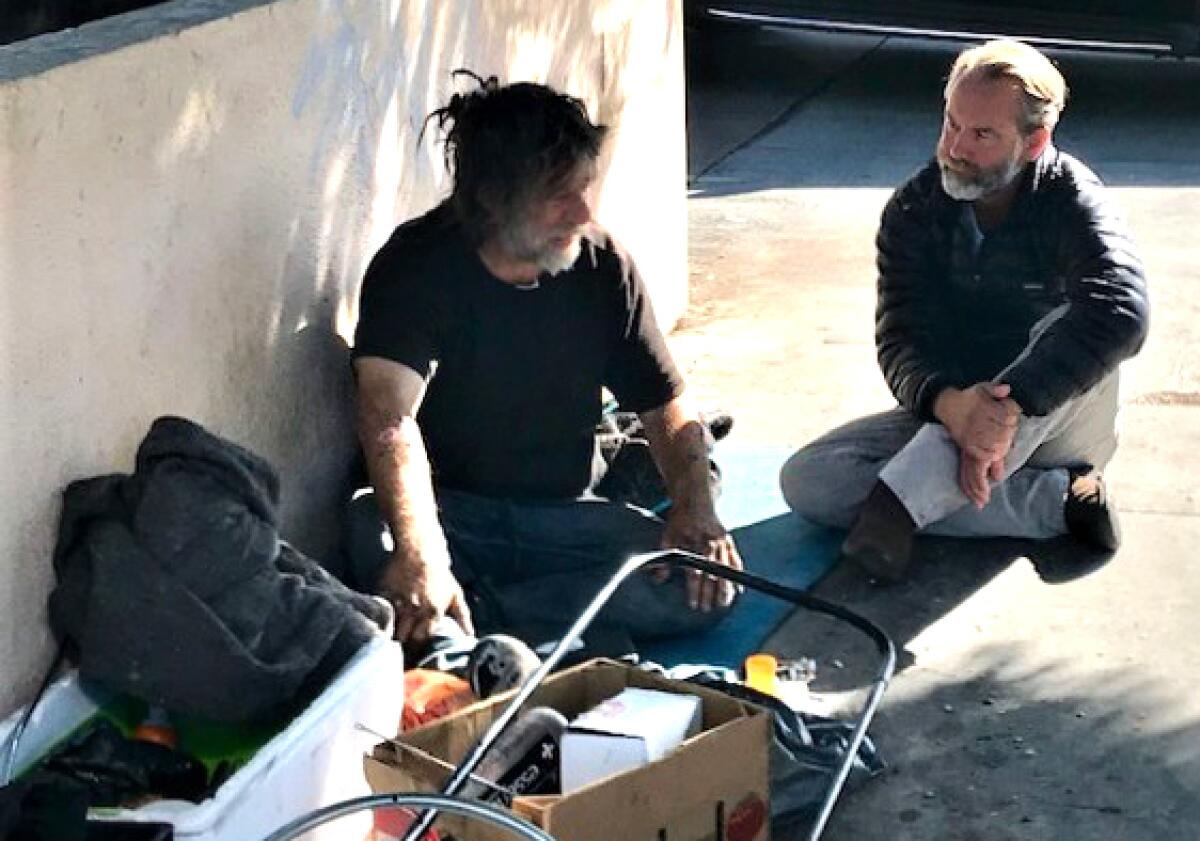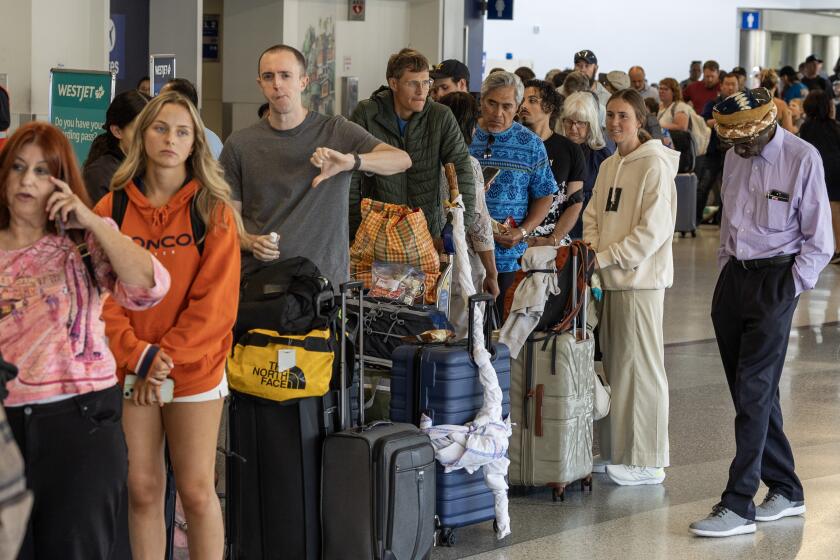Coronavirus sparks massive surge in demand for mental health services in L.A. County

As the number of coronavirus cases continues to increase in Los Angeles County, with more than 23,000 people infected so far, fear and anxiety have gripped residents worried about jobs, health and an uncertain future.
The county has recorded a massive uptick in calls and texts to its mental health help line as residents obey Safer-at-Home orders to remain socially distant, officials say. Such quarantine instructions put people at greater risk of anxiety, depression, insomnia and post-traumatic stress, Los Angeles County Supervisor Kathryn Barger said Friday during a news conference that kicked off Mental Health Awareness Month.
The county has received roughly 4,000 calls per week in April, which is approximately a 25% increase over April 2019. People who have never utilized mental health services are reaching out for help during the coronavirus pandemic, Barger said.
“There is nothing wrong with asking for help,” she said. “It is a sign of strength in an uncertain time.”
Telehealth services are available for one-on-one appointments, clinics remain open and mobile units have been deployed to reach those who are homeless and vulnerable.
County officials are encouraging residents to utilize its mental health services by calling (800) 854-7771 or texting “LA” to 741741.
As part of an initiative titled We Rise 2020, the county Department of Mental Health is also offering free access to the mediation and mindfulness mobile app Headspace through 2020. An annual subscription to the app is typically around $100.
No individual is unaffected by the crisis, Mental Health Department Director Dr. Jonathan Sherin said. Whether someone is a front line worker, has suffered financial loss or is fearful of being infected or infecting someone else, COVID-19 has disrupted every life, he said. Such obstacles have longstanding effects.
“The challenges we face emotionally are not just present now in the pandemic, but will likely stay with us for some time.”
The county typically recognizes Mental Health Awareness Month each year with in-person events that draws roughly 50,000 people. Sherin said that as such efforts necessarily move to the virtual space this year, he hopes thousands more will participate.
“We all share the same challenges,” he said. “We, as a county, must come together.”
More to Read
Sign up for Essential California
The most important California stories and recommendations in your inbox every morning.
You may occasionally receive promotional content from the Los Angeles Times.







